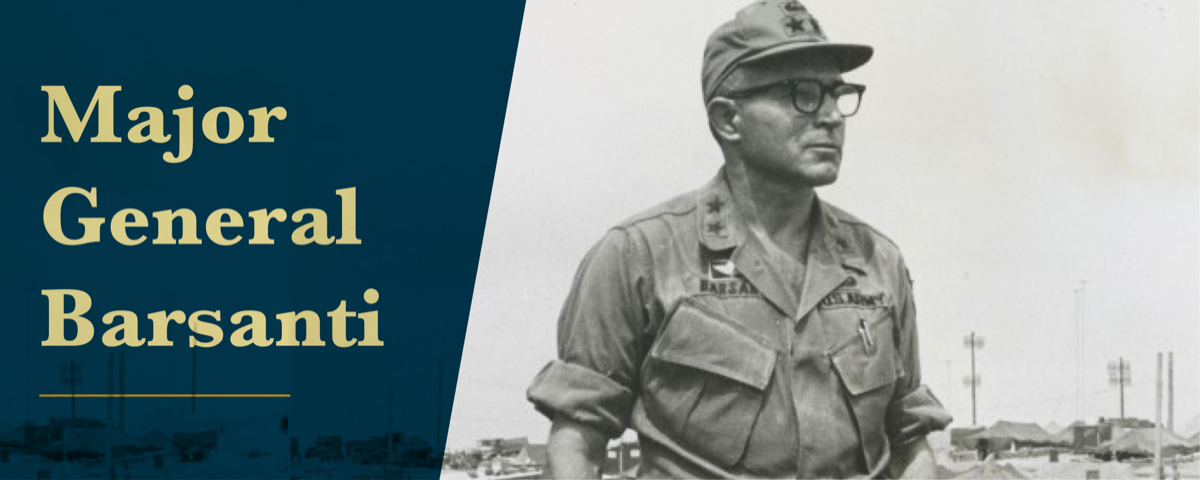Major General Olinto Mark Barsanti had the pleasure of serving his country in three major conflicts during his thirty-three years of service in the United States Army. Born in 1917, Barsanti joined the Army at age 22 and was promoted to Major before he saw his first conflict. In 1942, Barsanti met and married Althea Howell, and two years later arrived on the coast of France, for the beginning of World War II.
Upon returning home, Barsanti entered the Command and General Staff College at Fort Leavenworth, Kansas, and was invited to join the faculty, where he remained for three years. This time at home allowed him to grow his family, with the birth of his daughter Bette, in 1947.
In 1949, Barsanti was stationed in Japan to serve in General Headquarters, Far East Command and in June 1950, he played a major role in establishing a command post for General of the Army Douglas MacArthur at the start of the Korean War.
Barsanti was stationed in West Germany in 1954, where he was promoted to Colonel and took the position as Chief of Staff, Berlin Command. During this time, Barsanti completed Basic Airborne training with the 101st Airborne Division, which he would later command. In 1957, he was reassigned to Washington, D.C. where he served in various high level roles while earning his diploma from the National War College.
In 1963, Barsanti returned to combat duty in South Korea as Assistant Division Commander for Combat Operations for the 7th Infantry Division. In this position he was promoted to Brigadier General, becoming one of the youngest generals in the U.S. Army at the age of 46.
In 1976, he was promoted to Major General, and shortly thereafter assumed command of the 101st Airborne Division at Fort Campbell, Kentucky. The Screaming Eagles, as they were known, played a major role in the defense of major towns during the Tet Offensive, and had a strong track record throughout Barsanti’s time commanding them.
Due to his declining health, Barsanti left the 101st Airborne Division in 1968 and took on the role as Chief of Staff of the Fifth Army in Fort Sheridan, IL. He retired from the Army in 1971, moving into a private sector business role, before dying of cancer in 1973. His thirty-three years of service left him highly respected amongst his peers, and one of the most highly decorated American soldier in history with over sixty decorations.
